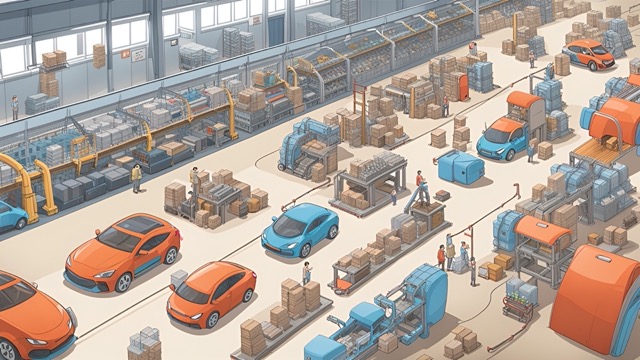This is a summarised version of the Opinion Paper (Early Access) - The Metaverse in Engineering Management: Overview, Opportunities, Challenges, and Future Research Agenda Metaverse in Supply Chain Section that appeared in IEEE Transactions on Engineering Management, Australian Business Deans Council (ABDC) ranked A, Chartered Association of Business Schools' Academic Journal Guide (ABS): Level 3.
| Metaverse in Supply Chain |
|---|
 |
The metaverse, seen as the next phase of internet evolution, is set to reshape industries. It promises productivity gains, fresh business models, and increased competitiveness. However, it brings challenges in data privacy, security, and ethics.
This study examines the metaverse's significance in engineering management, specifically in the 5 key areas of
- supply chain,
- logistics,
- decision-making,
- technology, and
- knowledge management.
Insights from 10 diverse experts are provided for each area, offering a practical, multidisciplinary perspective applicable in real-world engineering management and technology contexts.
These insights have tangible potential to influence policies and drive societal and economic progress in the metaverse era. The section below discusses the metaverse's impact on supply chain and raises several issues for further study.
Metaverse in Supply Chain
Overview
Renault's 2022 demonstration of a digital twin metaverse, connecting equipment across production lines, allowed constant monitoring of 90% of supply flows. This system, supported by one billion daily data points, improved predictive maintenance, reduced downtime, and enhanced supply chain resilience. Real-time alerts on part shortages and transport risks aided carmakers in addressing supply constraints. By 2025, digitalization is expected to yield significant savings and reduced carbon emissions.
| Metaverse in Supply Chain |
|---|
 |
Opportunities
The metaverse has the potential to replicate manufacturing operations, enhance collaboration, and improve supply chain agility for sustainable business models. Companies like BMW and Bosch use digital factory replicas to seamlessly merge digital and physical aspects, offering value through predictive analysis, collaboration, and customization. Smart contracts and edge computing enable automatic responses, preventing congestion and supply shortages. Blockchain's transparency and nonfungible tokens enhance data tracking and ownership authentication, reducing paperwork. Virtual walkthroughs and simulations help teams identify inventory sources, anticipate disruptions, and provide training for warehouse operations and kitting processes.
Challenges
Some researchers identified differences and similarities between metaverse adopters and non-adopters in terms of challenges and expectations. Adopters face challenges related to adoption, costs, professional skills, suppliers, and customer commitment, while non-adopters are concerned about security and governance. Issues with data recency, portability, and ownership are amplified in the metaverse, complicating risk forecasting using multisourced data. Ensuring availability and interoperability is crucial for resilience. The metaverse allows users to create detailed identities, including biometric data, which scammers may exploit for impersonation attacks and illicit activities, such as promoting counterfeit goods or targeting competitors. Businesses should remain cautious of false impressions and malicious intent in advertising and promotions.
The Way Ahead
| Research Agenda |
|---|
 |
Research that focuses on the drivers and enablers of adoption, offering guidance to companies on navigating the path to adoption, implementation, and dependency management. To achieve resilience, companies must prioritize robustness in their software and hardware.
- How can companies ensure continuity through the correct approach?
- What data engineering efforts are necessary to synchronize data across various points in the user experience?
- Can collaborating with stronger parties, even competitors, help mitigate unnecessary dependence risks, particularly when lacking resources or infrastructure?
Additionally, a multiperspective understanding of data regulations concerning ownership, dissemination, and tracking is essential.
- What regulations should be adhered to?
- How can vital assets, like systems and product-related information, be safeguarded in an increasingly interconnected ecosystem?
Ensuring worker safety and leveraging the right support for innovation, collaboration, and sustainability are pressing concerns demanding attention.
Reference
[1] K. B. Ooi et al., "The Metaverse in Engineering Management: Overview, Opportunities, Challenges, and Future Research Agenda," IEEE Transactions on Engineering Management, pp. 1-8, 2023, doi: 10.1109/TEM.2023.3307562.